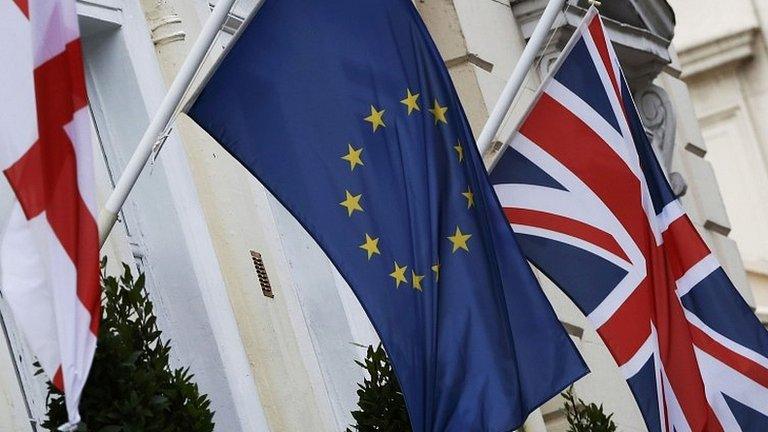EU exit could lead to break up of UK, says Lord Hague
- Published
- comments
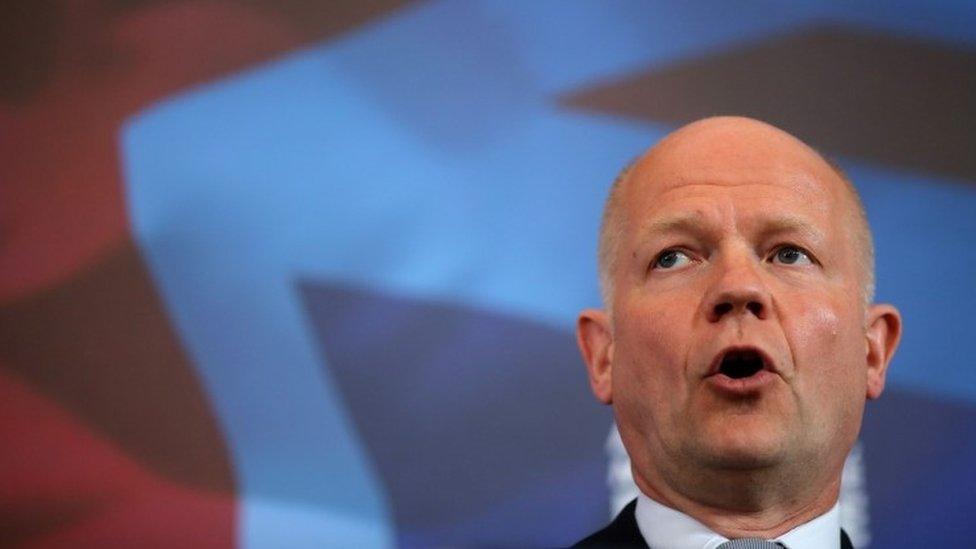
Leaving the EU could lead to the break up of the UK, former Foreign Secretary William Hague has warned.
In the Daily Telegraph, external, he said he was "unlikely" to join former cabinet colleagues Liam Fox and Owen Paterson in voting to leave in the referendum which he suggested would be in 2016.
Eurosceptic Tory MP Bernard Jenkin said Lord Hague was "completely wrong" to suggest a "Brexit" could split the UK.
The prime minister has promised to hold an in/out vote before the end of 2017.
Mr Hague's comments came as Poland's new President, Andrzej Duda, warned in an interview with the BBC that the EU would face a "very serious crisis" if the UK were to leave.
Mr Duda said the EU had "many weaknesses" and warned a UK exit from the bloc could cause further havoc.
"The EU has been shaken time and time again with crises - whether it's the financial crisis, or the refugees crisis," he said.
Polish President Andrzej Duda insists his party are not Eurosceptics but "Euro-realists"
"Let's not pretend, a UK exit from the EU will be a very serious crisis for the EU. Of that I have no doubt."
In Mr Hague's article he warned that if the UK did vote to leave the EU he believed Scottish nationalists would "jump at the chance" to re-open the independence debate, and "the result of it could well be too close to call".
He also said a UK departure would see the 28-member bloc lose one of its "respected military powers" and leave it weakened.
"To end up destroying the UK and gravely weakening the European Union would not be a very clever day's work," he wrote.
"So, even as a long-standing critic of so much of that struggling organisation, I am unlikely in 2016 to vote to leave it," he said.
"We will have to ask, disliking so many aspects of it as we do, whether we really want to weaken it, and at the same time increase the chances, if the UK left the EU, of Scotland leaving the UK."

Analysis
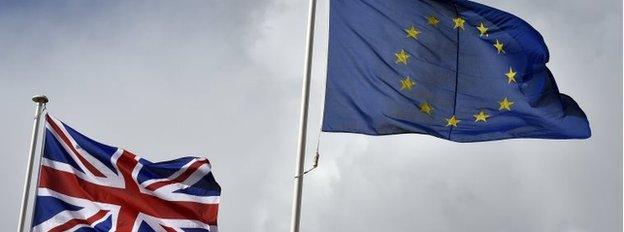
By BBC political correspondent Iain Watson
When he was Conservative leader, William Hague fought the 2001 election campaign on a strong commitment to keep the pound, and keep out of the euro.
He has been seen as a Eurosceptic ever since.
But Lord Hague says a vote to withdraw would give the SNP the pretext to call second referendum on independence.
Those who want to leave the EU are likely to see this as a tacit admission that Prime Minister David Cameron's negotiations will produce little of substance and that alternative arguments are already being marshalled for continued UK membership.

Responding to Lord Hague's comments, Mr Jenkin said Downing Street was "clearly mounting a campaign to stay in the EU" even though Mr Cameron's renegotiations are not yet complete.
He added: "It is extremely unlikely that if England, Wales and Northern Ireland voted clearly to leave the European Union, that Scotland would vote differently."
He told BBC Radio 4's The World at One that Mr Hague's view "was not a surprise" and urged the prime minister not to "muzzle" ministers in expressing their views on a decision that "utterly dwarfs" the significance of a general election.
SNP Europe spokesman Stephen Gethins said the Conservatives had "lost all credibility on Europe".
"While it is welcome progress to see senior Tories finally ceding that it would be completely unacceptable for Scotland to be dragged out of the European Union against its will - we still have no answers as to how they will ensure this does not happen," he added.
On Monday former Deputy Prime Minister Lord Heseltine warned of a "civil war" in the Conservative Party if cabinet ministers were given a free vote in the EU referendum - meaning they could vote as they saw fit and were not whipped into toeing the party line.
He argued that a free vote would make Mr Cameron a global "laughing stock".
Meanwhile, Conservative Party vice-chairman Mark Field has also criticised calls for ministers to be given a free vote.
He told the Daily Telegraph, external that anyone who was not prepared to back Mr Cameron's re-negotiation should resign from the government.
- Published30 December 2020

- Published23 December 2015
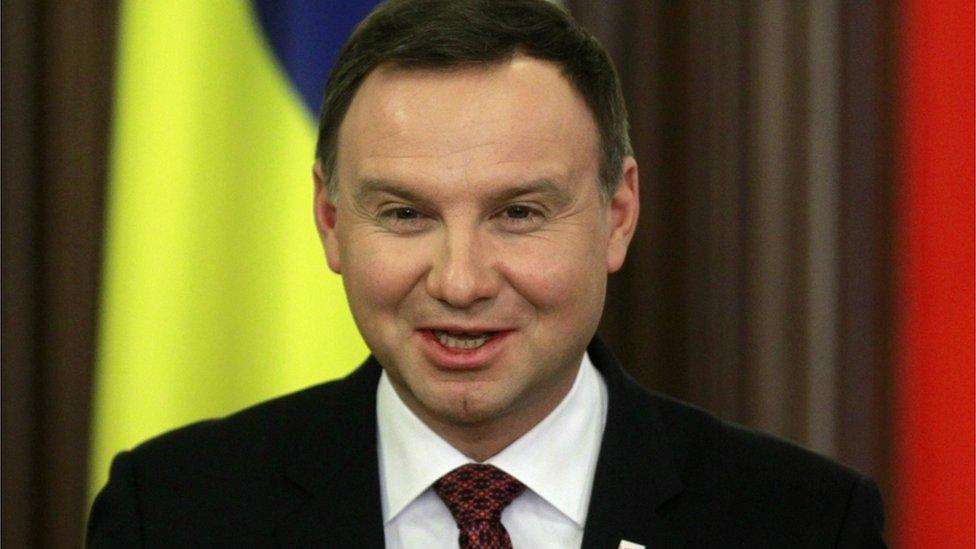
- Published21 December 2015
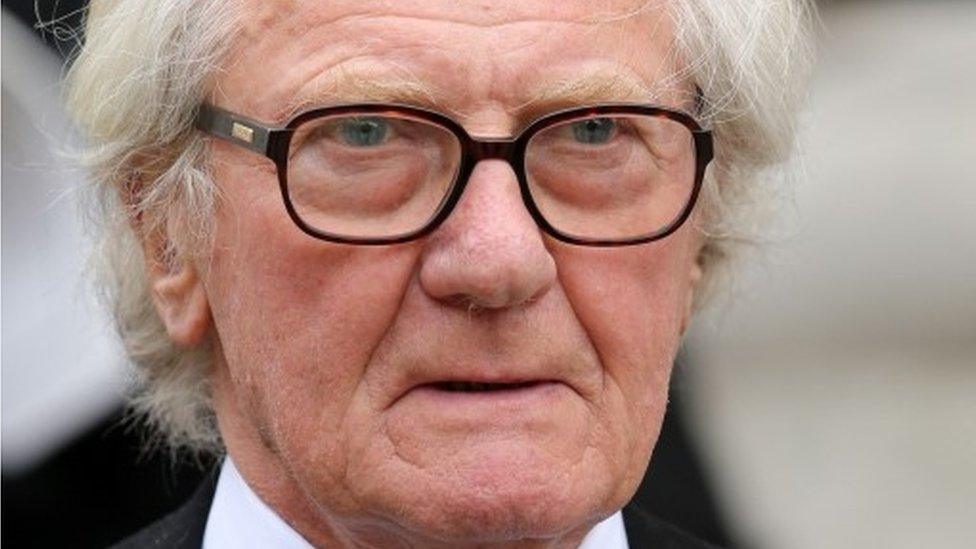
- Published21 December 2015
